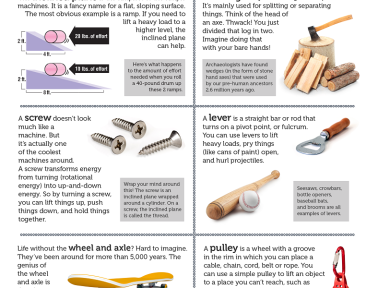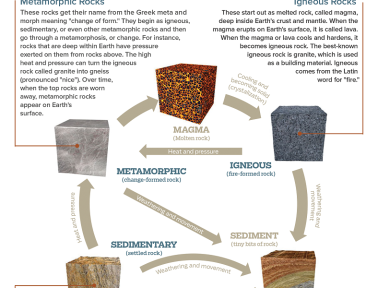I enjoy the phrase Heather uses in this initial phase.
Swiping Play.
In basically talking about the importance of developmentally appropriate practice, she strikes home on an extremely crucial point:
It isn’t what children are doing that is of the greatest concern. It’s what they’re NOT doing.
If you require a refresher on developmentally proper technique, this collection must have you covered. The idea is that there’s a developmental progression that has to be recognized and observed as we collaborate with kids. Unfortunately, in an effort to “maintain” or “get ahead” culture’s excellent intents can commonly be lost and those all-natural timelines end up getting the cold shoulder.
As Heather Shumaker efficiently mentions:
We live in a state-of-the-art age, which often tends to shade a lot of just how we view our lives. Modern technology is reducing side. Everything is focused on more recent, better, much faster. Yet childhood years, as a developing period, is still timeless. As research substantiates, the progression of child development hasn’t sped up– despite our increased expectations. And the great paradox is that due to today’s cutting side innovation, we have neuroscience and also other areas of research that support the relevance of honoring this developmental progression. And yet, ” The void between what we know about young kids and also what we do with little ones is widening every year.”
However as Heather explains, the actual risk of this velocity isn’t what’s been added– the flashcards as well as kid tutors as well as progressed preschool positionings. The risk is in what is being lost.
There are still only 24-hour in a day, regardless of exactly how hard you attempt to cheat that (believe me, I have actually tried). And also our interest can just be in many places (I’ve tried ripping off that also). So when we shift our concerns and also concentrate to pushing developing as well as educational goals to the more youthful years, there’s something that obtains pushed out. For our preschoolers today, it’s usually play that is ousted.
Why not trade a little dress up time for some beneficial reading guideline? Seems more crucial.
Because play is a developing need. Especially in the preschool years. In this “burglarizing Peter to pay Paul” circumstance, we take what is required NOW to address what is needed LATER. It’s a backwards game of catch-up.
The unfortunate paradox is that when you miss what you need CURRENTLY it actually becomes tougher, not less complicated, to do what you need to do LATER. Situation in factor: Analysis. Showing view words as well as decoding skills (the visible proficiency skills) prior to a kid has built preproficiency skills such as basic phonemic awareness or principles of print will always result in problems. It isn’t the early analysis guideline that created them though, it’s the missed preproficiency exposure. Actually, among the greatest predictors of reading effectiveness is the preliteracy skill of phonemic recognition. It’s like building a home without a foundation.
For those who overlook their noses at play, choosing to take an “enriched” course towards generating natural born players, below’s what Einstein needed to state concerning that:
Past the proof that youngsters learn better when their growth is valued, the much more pernicious problem is that when we disregard the natural human style and don’t allow for the mind and also the body to obtain what they need to develop appropriately, we have a dish for ailment. The decrease in play has been linked not just to childhood years excessive weight, yet to psychopathology such as anxiety, clinical depression, as well as other neuroses.
What we think of as enrichment, may in fact be burglarizing youngsters of what is really vital: PLAY. Which has its repercussions.
From page 14:
” If we’re consistent, most four-year-olds can be educated to acknowledge letters all right to review easy words. However at what price? Early academics take play, which is when nearly all of a youngster’s emotional, social, physical and also cognitive discovering occurs. The kid’s brain is being asked to do something it doesn’t require to do now. As kid psycho therapist David Elkind advises us, “Miseducation shows the wrong things at the incorrect time.” Social skills experience. Happiness endures. Also future scholastic success can experience.”
Oh a lot extra in Area 1! Thank benefits we’ll have a G+ Hangout session to discuss it further!
What struck home with you, or caused you to damage your head a little bit?
Think about some of these gems from the section if you require to run your memory:
” Certainly rights and also limitations go together.” (p17)
” False Free Play” (p19)
” Peace isn’t the lack of problem. Tranquility is the respectful resolution of problem.” (p38)
” A classsroom with excessive structure is a dreadful location to learn more about peace … Children learn more about peace by having issues.” (p41)
” Inform the Right Person” (p45)
” Children that learn how to set limits on peers won’t be quickly hoodwinked out of their legal rights when a grownup isn’t about.” (p51)
Make sure to contribute to the remarks below! These will be thought about as we prepare our upcoming publication discussion with the writer, Heather Shumaker.
( As well as prior to you go, head over below to grab your read along schedule! You can also check back there to locate links as well as days for the book chats!)
*** The Google Hangout with Heather Shumaker and Anna Ranson (of The Creative Imagination Tree) was remarkable! Find it below or view it listed below:
” 315″ size=”
560″ allowfullscreen =”” frameborder=”0″ >










